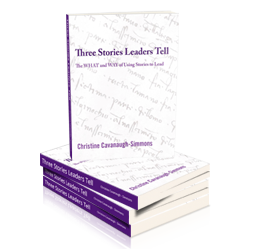People I Love: Bella Abzug

Two stories shape our lives: the stories we tell about ourselves, and the master social narrative that defines our relationships and roles within society. A defining moment for people of color and women comes when they recognize they either are not included in the dominant social narrative or are belittled and disempowered by it. When people in marginalized groups offer what’s known as a “counter narrative,” they open up new worlds of possibility for themselves and others in their group. I’ve always been most inspired by those with the courage to bring forth a counter narrative that creates a new social narrative into which I could step. This series of stories features such people. I hope you find them as inspiring as I have. For more on the importance of the stories we tell—and believe—about ourselves, and the power we can claim when we re-author those stories and offer counter narratives, please see The Power of Counter Narrative.
Bella Abzug
Lawyer, Activist, Politician
The 1960s were made for Bella Abzug.
As she herself described her life’s work, “I spend all day figuring out how to beat the machine and knock the crap out of the political power structure.”
“Talk about someone being her own weather system,” reflected Christine Cavanaugh-Simmons, president of CCS Consulting Inc. “She really was the epitome of everything I was raised not to be—and I loved it. She was loud, noisy—a rabble-rouser.”
Born “yelling,” as she put it, to Russian immigrants in 1920, Abzug grew up poor in the Bronx, where she developed a desire to champion the disenfranchised and marginalized in society.
After graduating from Hunter College, where she was president of the student council, Abzug applied to Harvard Law School, which would not admit its first women until 1950. Instead, Abzug attended and graduated from Columbia University’s law school in 1947.
She practiced labor and tenants’ rights law, later expanding to civil rights cases. During the dark McCarthy era, Abzug was one of the few lawyers willing to fight against the House Un-American Activities Committee.
It was as a lawyer that she began donning what became her iconic bold hats. “I began wearing hats as a young lawyer,” she explained, “because it helped me to establish my professional identity. Before that, whenever I was at a meeting, someone would ask me to get coffee.”
Abzug was an unabashed feminist, and fought tirelessly for women’s issues.
“At that time, Gloria Steinem loomed large, but I was drawn to Bella,” Cavanaugh-Simmons recalled. “Gloria always felt ethereal and ungrounded to me. Bella had heft; she stood her ground.”
Abzug was unapologetically liberal. In the ’60s, she became involved in the peace and nuclear disarmament movements. In 1961, she helped organize Women Strike for Peace. Later, with Steinem and Betty Friedan, Abzug helped to establish the National Women’s Political Caucus to give women a greater voice in public affairs.
“We are bringing women into politics to change the nature of politics, to change the vision, to change the institutions,” Abzug said. “Women are not wedded to the policies of the past. We didn’t craft them. They didn’t let us.”
"Bella had heft; she stood her ground."
But Abzug had no doubt that women would help to change politics and political institutions. “Maybe we weren’t at the Last Supper, but we’re certainly going to be at the next one,” she said.
Abzug ran for and won a seat in Congress in 1970. “A woman’s place is in the house—the House of Representatives,” she said. She served from 1971 to 1977. On her first day in office, Abzug introduced legislation to remove all U.S. troops from Vietnam. It didn’t pass, but it signaled that Abzug was going to be heard.
In 1975, she introduced the first-ever gay rights legislation.
“That was revolutionary,” Cavanaugh-Simmons said. “Here she was, again offering a counter narrative. And because she came forward so strongly, she was labeled a man-hater and called every name in the book.”
Cavanaugh-Simmons said Abzug’s reception was instructive.
“As a woman, seeing her step up and take these kinds of hits, I realized this is what happens when you bring forward a counter narrative,” she said. “You’ll be painted as abnormal and amoral.”
Cavanaugh-Simmons notes that her work leads her to guide clients toward a counter narrative. “What I’m here to do is to create space to guide and help people find their way through the sorts of things Abzug faced,” she said.
Abzug ran for the U.S. Senate in 1976, narrowly losing to Daniel Patrick Moynihan. She later lost a bid for New York mayor. But she continued to speak out on the issues.
“Our struggle today is not to have a female Einstein get appointed as an assistant professor,” Abzug said. “It is for a woman schlemiel to get as quickly promoted as a male schlemiel.”
In 1977, Abzug headed up the first National Women’s Conference. A year later, President Carter tapped her to head the National Advisory Committee on Women. He fired her a year later when she criticized the administration’s economic policies.
Abzug went on to found Women USA, a grassroots political group. She meanwhile continued participating at United Nations International Women’s Conferences, practicing law, lecturing, and writing. In 1990, she helped to set up the Women’s Environment and Development Organization, an international advocacy group, and her presidency gave her clout within United Nations conferences.
Abzug died March 31, 1998, outliving her husband of more than forty years, Martin. Her work and legacy is kept alive by the Bella Abzug Leadership Institute.
The Book

Help leaders unlock the power of stories to inspire, engage and guide teams and entire organizations
My Story is My Path
Resources for all those called to leadership who understand the power of words and stories to shape their futures from one of the nation’s preeminent narrative coaches, Christine Cavanaugh-Simmons of CCS Consulting Inc.